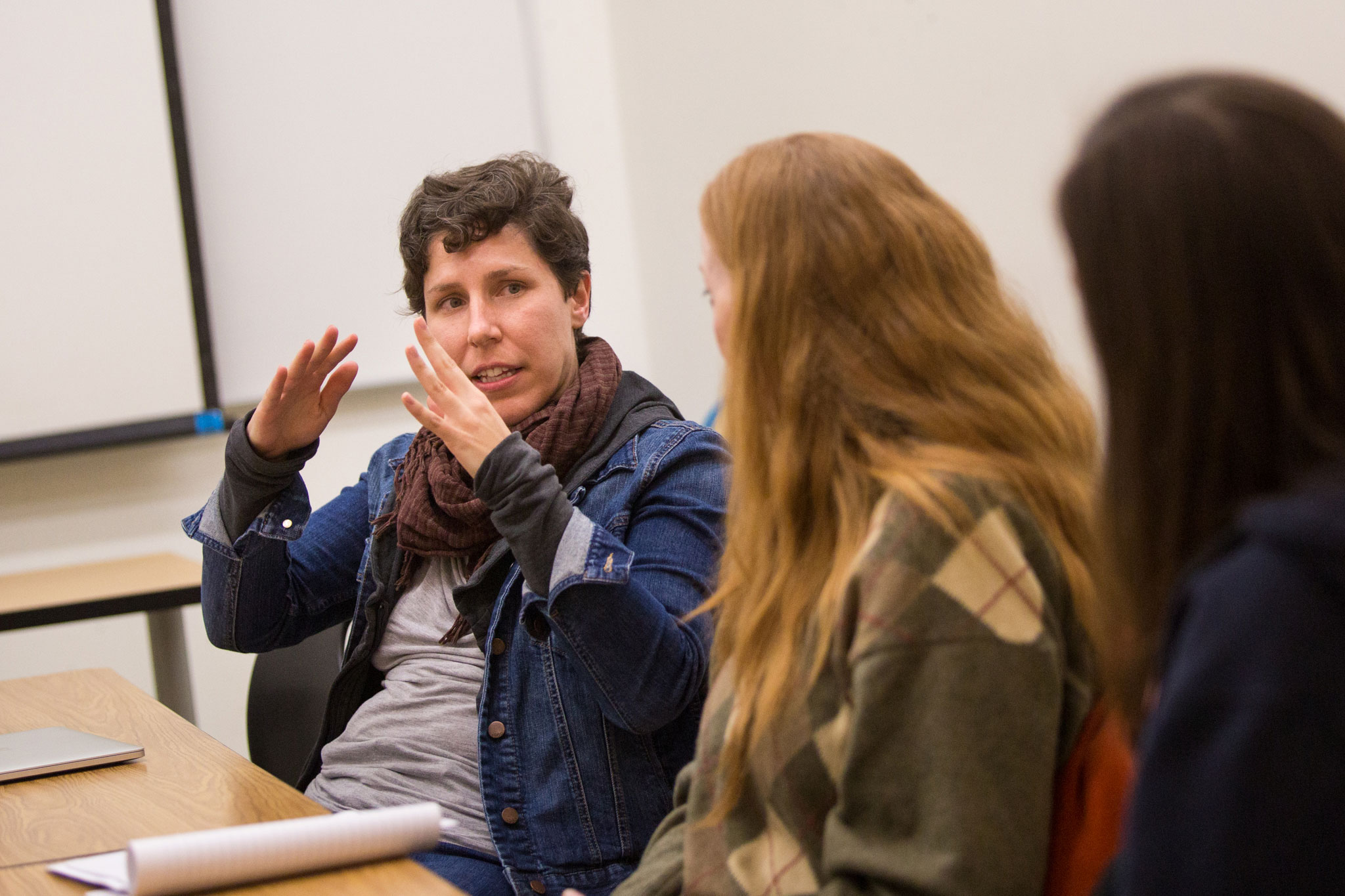 Lisa Cantrell (left), a Sacramento State assistant professor of Child Development, says the goal of her new storytelling series is to bring the community closer by fostering better understanding of one another. (Sacramento State/Jessica Vernone)
Lisa Cantrell (left), a Sacramento State assistant professor of Child Development, says the goal of her new storytelling series is to bring the community closer by fostering better understanding of one another. (Sacramento State/Jessica Vernone)A Sacramento State professor is bringing one of humanity’s oldest traditions – storytelling – to the capital city.
Lisa Cantrell, an assistant professor of child development whose research explores how language and culture shape the way people, especially children, perceive the world, is launching a new performance series called “Capital Storytelling.” It’s Sacramento’s first such series to emphasize personal or biographical storytelling, as opposed to fictional storytelling.
The first event will be held April 26 at the Verge Center for the arts and is open to the public. The goal, Cantrell says, is to create a space where Sacramentans can come together, share experiences, and learn from each other.
“Storytelling is how we build empathy,” Cantrell said. “We know from psychology that, before you actually change your own perspective on things, you have to first hear someone’s individual experience. The moment that it becomes individual and you say, ‘Here’s my story and here’s how this affects me,’ that’s what shifts someone else’s perspective.”
There is also a social justice component to Capital Storytelling. The people whose stories are heard – and are therefore able to influence policy – are often those who are already in power, Cantrell said. Through both the series and the workshops, which she hopes to hold three or four times a year, one of her goals is to build capacity among underrepresented groups such as people of color, women, and LGBTQ+ individuals, so their voices can be better heard at the local, state, and national levels.
Personal storytelling tends to fit into two categories. There are the more lighthearted stories that humanize the speaker, such as recounting embarrassing moment. There are also serious stories that center around an impactful or important moment in someone’s life, such as the decision to have an abortion or come out as LGBTQ+ to one’s family. Both, Cantrell said, can be effective ways of building empathy.
“Someone who is an immigrant doesn’t have to get on stage and tell you the story of their life as an immigrant,” she said. “They can get on stage and tell you a story about peeing their pants, and what that does is you immediately see them as an individual and it resonates with you and you relate to that person.
"But then there are also bigger stories where someone will get on stage and say, ‘I’m an immigrant and here’s that story.’ ”
During three-week workshops held at Sacramento State in early March, a small group of students faculty and staff learned the essential components of a story – conflict, tension, climax, and a resolution that shows how the individual has changed as a result – and developed their own, five- to 10-minute stories to present in front of the group for critique.
Cantrell expects some participants to perform at the April 26 event. Lauren Thompson, a first-year deaf studies student at Sacramento State, hopes to be one of them. She workshopped two stories, including one about awkwardly running into a long-lost acquaintance at a party, and said learning about the storytelling process has helped her in other areas, as well.
“I’m in the process of writing a book, a novel I’ve been stuck on for a while, so hearing these different techniques, it made me want to start writing again,” Thompson said.
It’s a process Cantrell had to learn as well. Admitting she is “not a natural storyteller,” Cantrell started training herself a few years ago when she launched her science-education podcast. She hopes to eventually record some stories that are produced as part of Capital Storytelling and put them online. But through the performances, the initial aim is to establish a new sort of community forum that brings people closer together.
“You have this space where you have people come in, sit down, and listen to someone on stage share a story” Cantrell said. “If fosters community among those people. You meet people you wouldn’t necessarily meet. You hear a story from someone who may or may not look like you.
"That fosters some sort of empathy, and that may change your perspective on the world.” – Jonathan Morales
